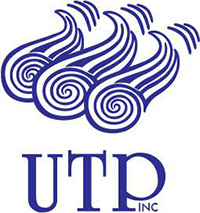
Niagara College’s Teaching Distillery has added seven new medals to its growing collection—the most it’s ever won in a single competition.
Of the 10 spirits entered into the 2024 Canadian Artisan Spirit Competition last summer, the Distillery earned a gold medal for its Mediterranean Vodka, a silver (and Merit in Terroir) for its Taylor Rosso Vermouth, and bronze medals for its Amaro Sparacci, Tanzanite Gin, School Spirits Vodka, Single Malt and Eastern Hospitality.
The winners were announced recently by the Artisan Distillers of Canada.
“Winning seven medals at one national competition is an outstanding accomplishment for our Teaching Distillery, but an even bigger testament to the calibre of applied learning at Niagara College,” said Steve Gill, General Manager of the College’s Learning Enterprises. “Our trailblazing Teaching Distillery continues to shine at national and international competitions because the students behind the entries are excelling at the skills they’re learning at Niagara College. Congratulations to the amazing alumni distillers, staff and students behind our latest award-winning spirits!”
Simon Raj, who helped create the gold medal-winning Mediterranean Vodka alongside classmates Disha Bhendwal, Manpreet Kaur and Jeewanjot Kaur, described the win as “an absolute honour.
“It was something unimagined and unbelievable,” said Raj, who’s originally from Bokaro Steel City, India.
Mediterranean Vodka is a neutral spirit with very little sugar but several spices that are often found in Mediterranean cooking, including basil, mint, lemon and coriander.
Raj said the complex flavour and aroma of the different spices and herbs made it tricky to get the proportions just right.
“The major challenge (we) faced was to get the composition of these four spices right. We had to make extracts of each spice separately and in different concentrations of ABV neutral spirit. There was a total of five trials done for us to reach the final proposition for the spirit.”
 Eastern Hospitality, one of five spirits that earned a bronze medal, was inspired by the flavour profile of Shochu, a Japanese distilled spirit made from grains and vegetables. The koji process is used in the production of Shochu. It’s a confirmation process that uses another microbe to help take over the role of the breakdown of the sugars in the process—and it’s not commonly used in North America.
Eastern Hospitality, one of five spirits that earned a bronze medal, was inspired by the flavour profile of Shochu, a Japanese distilled spirit made from grains and vegetables. The koji process is used in the production of Shochu. It’s a confirmation process that uses another microbe to help take over the role of the breakdown of the sugars in the process—and it’s not commonly used in North America.
Elisa Lavigna, one of four students who worked on the spirit, said it was tricky to work with rice flakes.
“The main challenges we encountered through our project included working with rice flakes and their different response to standard processing, understanding what the best approach was to incorporate koji in our making process, and last but not least, having proper time management to have every component sufficiently aged and blended by the required deadline,” Lavigna said.
The Distillery’s silver medal-winning Taylor Rosso Vermouth is a favourite of Head Distiller David Dickson, who described it as having some “bigger, bolder flavours.
“We actually used some fortified port-style wine that we teamed up with the distiller in the winery to make,” he said. “The winery was working on a port, we still had some spirit to fortify (and) there was some of that wine that either they didn’t need or didn’t quite meet their balance. We took some of that wine blended in a kind of standard white wine (and) it added all these different botanical flavours. It’s the most botanicals we’ve ever had in a product at Niagara College, and it was really complex.”
Tanzanite Gin (bronze) was inspired by the classic London dry style with some flavours of the newer style of gin, Dickson said. Aged with cherry wood chips, the spirit has some wood character but is still “bright and refreshing.”
The Single Malt Whisky (bronze) is now an end-of-term production for first-term students, Dickson continued. It’s made every first semester but takes three years to age.
The School Spirits Vodka (bronze) is the Distillery’s standard vodka with a clean, neutral profile, while the key ingredient in Amaro Sparacci is asparagus.
Speaking to the number of medals the Teaching Distillery won at the competition, Dickson said he’s proud of the students’ accomplishments—not just because of the wins, but because of the work put into the spirits.
“With the amount of time we have to develop these projects and everything that goes into them, it’s so impressive—the quality that the students are able to achieve. Releasing them is one of the happiest days of the year for me.”
NC’s latest award-winning spirits are available for purchase alongside a variety of student-created products from NC’s Teaching Distillery, Teaching Brewery and Teaching Winery (while supplies last) at the College’s Wine + Visitor Education Centre, located at the Daniel J. Patterson Campus in Niagara-on-the-Lake (135 Taylor Rd.) or online at ncteachingwinery.ca.
Niagara College’s Teaching Distillery is a 2,500-square-foot facility located at Niagara College’s Daniel J. Patterson Campus in Niagara-on-the-Lake, which is home to NC’s Artisan Distilling program. Students produce a variety of distilled products including vodka, gin, brandy, rum, whisky and other spirits. The program and the Teaching Distillery launched in September 2018 as the first of its kind in Canada, following the footsteps of NC’s trailblazing Teaching Winery and Teaching Brewery. Visit NC’s School of Wine, Beer and Spirits for program information.
 Back to myNiagaraOnline
Back to myNiagaraOnline





















